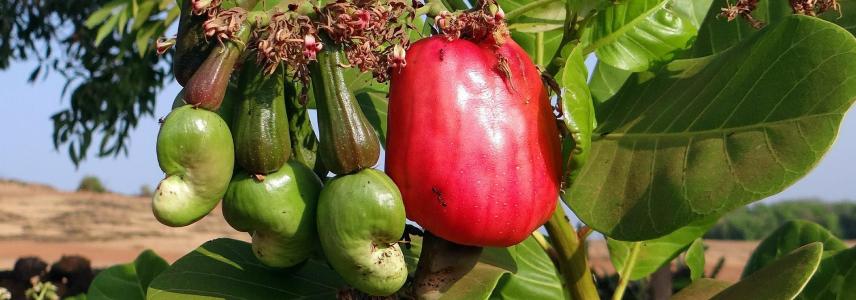Côte d'Ivoire is a leading example in processing cashew nuts

Africa produces most of the world's cashew nuts but only processes 10% of them; Asia imports and processes the rest of the African nuts. So, African countries miss economic chances and development because they lack processing capacity. Côte d'Ivoire is leading in the growth of African processing capacity and added value.
Top cashew producer in the world
Côte d'Ivoire is the top cashew producer in the world; its gross cashew production grew from 460,000 tonnes in 2013 to 1.1 million tonnes in 2021. The shelled cashew kernel production in the same period grew from 30,000 tonnes to 110,000 tonnes. Of all raw cashews traded in the international market, 90% are from Africa. Still, African countries process less than 15% of the nuts.
Côte d'Ivoire increases its processing capacity
A key challenge for African cashew nut producers is the limited processing capacity, making many African cashew producers miss valuable economic opportunities. For example, most producers from Tanzania, Ghana, Guinea-Bissau and Benin export a larger part of their cashew harvest to Vietnam and India for processing. But other African producers, from Côte d'Ivoire, Nigeria, Mozambique and Burkina Faso, started processing cashews in their countries. Ivorian-owned firms processed 25,000 tonnes of cashew kernels in 2021. A year earlier, Côte d'Ivoire exported 691,000 tonnes of unshelled cashews, and 13,500 tonnes of shelled cashews, worldwide. Next to Côte d'Ivoire, other countries are working to increase their processing capacity. Some producers who started processing their cashews also entered the European market and global markets like Japan and the United Arab Emirates (UAE). Entering the global market offers producers the chance to charge much higher prices.
Impact on local communities
Expanding local processing also has a huge positive economic impact on local communities. Thanks to cashew production, the living conditions have already improved in some regions and communities in Côte d'Ivoire. Producers shell nuts mainly by hand and then pack them. Production and processing of nuts give local farmers a chance to a more diverse income. Currently, cashew production means a living for more than 410,000 families. But, according to a recent UN report, the export price of cashew nuts from India to the European Union (EU) was about 3.5 times higher than what Ivorian producers received. And after second-stage processing in Europe, the export price was 8.5 times higher. The switch to local processing means that producing countries can keep some of the added value.
Investments in cashew nut processing
Côte d'Ivoire currently processes only 10% of its cashew harvest. But its government invested in increasing local production. Next to that, the government:
- promotes national cashew processing;
- agreed with businesses in the sector to support the construction of a local value chain;
- introduced a minimum purchase price in 2013;
- introduced tax incentives;
- took severe actions to stop smugglers; and
- aims for a national processing rate of 40 to 50% by 2025.
The World Bank and International Monetary Fund (IMF) investments support Côte d'Ivoire, too. More and more investments in recent years helped start up processing centres in Bondoukou, Korhogo, Bouaké, Yamoussoukro and Abidjan. There now are about 15 processing centres under construction and 15 existing centres. Currently, Côte d'Ivoire is the only country with a policy that:
- supports the cashew industry;
- sets prices for producers;
- taxes raw exports; and
- facilitates factory building.
Other countries like Burkina Faso, Benin, and Ghana are starting to follow Côte d'Ivoire’s example.
Learn more
To learn more about the cashew nut market, read the CBI study: Exporting cashew nuts to Europe.
M-Brain wrote this news article for CBI
Stay informed
To stay informed on the latest developments in the processed foods and vegetables sector, subscribe to our newsletter.